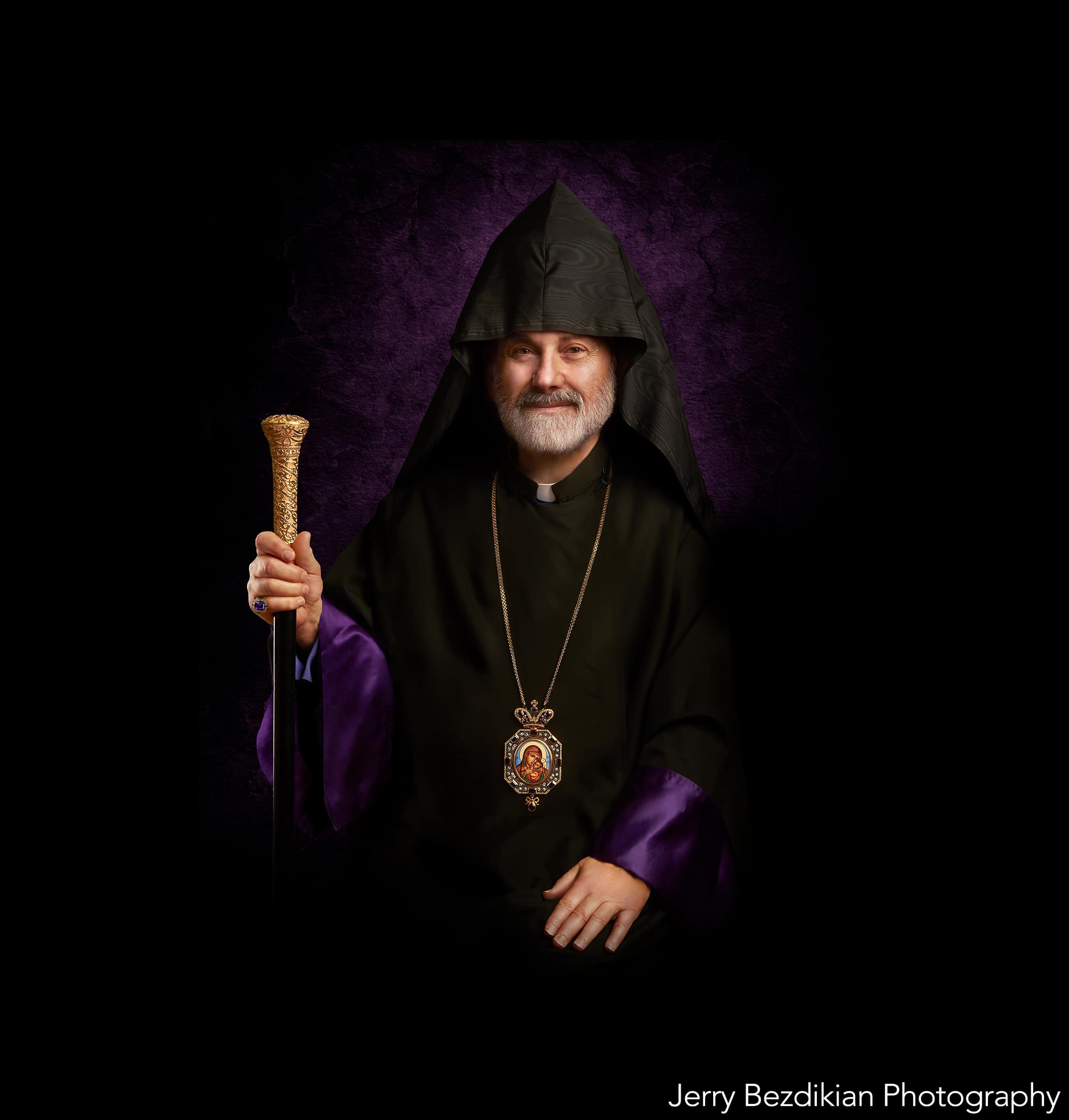The Prelate’s Sermon, Sunday, February 27
Today, according to the Armenian Church calendar we start our spiritual journey over six weeks, known as the Great Lent, to be followed by Palm Sunday and eventually the Holy Resurrection of our Lord Jesus Christ.
The Armenian Church Fathers have designated six Sundays for this period with a deep understanding of symbolism in comparison of the six days of the Creation according to the Bible. The Armenian Church audio-visually educates her believers, first by closing the curtain, which signals the humanity’s deprivation from the blissful life in Eden. Second, the melodies of hymns, with more somber tones and full of supplication, invite the faithful to an inner journey of contemplation and renewal.
Most often a question storms the belief of the faithful: Why does the Church close the curtain on the first Sunday, known as Poon Paregentan, which literally denotes joy and again biblically refers to the blissful life of our fore-parents in Eden? Another valid question is that according to the Armenian Church calendar, Monday, the following day, is referred as the first day of Lent. Therefore, if this is the case, then why is the joy of Sunday veiled?
Surely, we cannot trace this tradition back to the early centuries, for its usage, as is today, was introduced later in liturgical life. We do not have at hand any solid reason for this current arrangement, which is attributed to some reforms by Catholicos Simeon of Yerevan (1763-1780); nevertheless, I will share a few thoughts rooted in the biblical and ecclesiological understanding of the closure of the curtain at the very beginning of this journey.
There is no doubt that the central theme of this day, which the Church essentially celebrates, is the Creation of the Crown of the universe in the image and likeness of the Creator, and the supreme joy in Paradise. The hymns dedicated to the mystery of this day are imbedded with the unparalleled bliss of our fore-parents, described as follows:
“The Word [who abides] in essence with the Father, one in essence with the Holy Spirit, united his image with our mortal nature and adorned it with glory and place it in a paradise of delight.
“[Where Adam] rejoiced in joy without sorrow, for he always saw in paradise God who had come down from whom he received and imprinted in himself a ray of light.”
Yet, we should not be quick in our judgment. We should not ignore the crucial truth that our Fore-parents were showered with unequalled privileges but unfortunately in the Paradise dishonored the grace vested upon them. If the first Sunday of the Great Lent is named Paregentan, the day of joy par excellence, and the second Sunday is named the Expulsion, where we should place the Fall, which derailed the life of the fore-parents and their descendants for ages and ages?
I believe that the Church Fathers have made a subtle arrangement to express within the same day this great mystery of the “Transition”, which is incomprehensible to the human mind, yet well known to the Creator and our heavenly Father. Symbolically they have synchronized the Rise and the Fall of Man, the most privileged human, who instead of welcoming the call of the Father in Eden was afraid and tried to hide, clearly expressing the shame lamented upon the trespassing, the disobedience, the Sin.
The hymns of the Paregentan day, as much as they celebrate the joyfulness of the day, yet they refer to the mourning of its loss, which was transformed in its initial form of joy only through the Sacred Sacrifice of the Law Giver Himself.
“Today the second Adam remains without food for the sake of the first [Adam] to cleanse away the debts caused by eating of the fruit, O God of our fathers.”
“Today the sons of Adam rejoice, because at the beginning in the paradise, the founder of the law of the fasting agrees for our sake to fast in the flesh, O God of our fathers.
Having in mind this great mystery we should avoid looking at it through earthly perspective, interpreting the name Paregentan as if it is a day only for the last chance of decadence before fasting, but rather to commence the season of Great Lent as a cycle of contemplation upon our past amazing glory and deplorable Fall. We are called to celebrate our renewal due to the infinite Divine love manifested in the Only Begotten Son.
Let us humbly with prayers and supplications elevate our souls to heavens over these six Sundays, like the ladder of the Patriarch Jacob into the heavens (Gen 28), and unceasingly praise ever-loving Father, the ever-sacrificing Only Begotten Son and the ever-energizing Holy Spirit. Amen.

